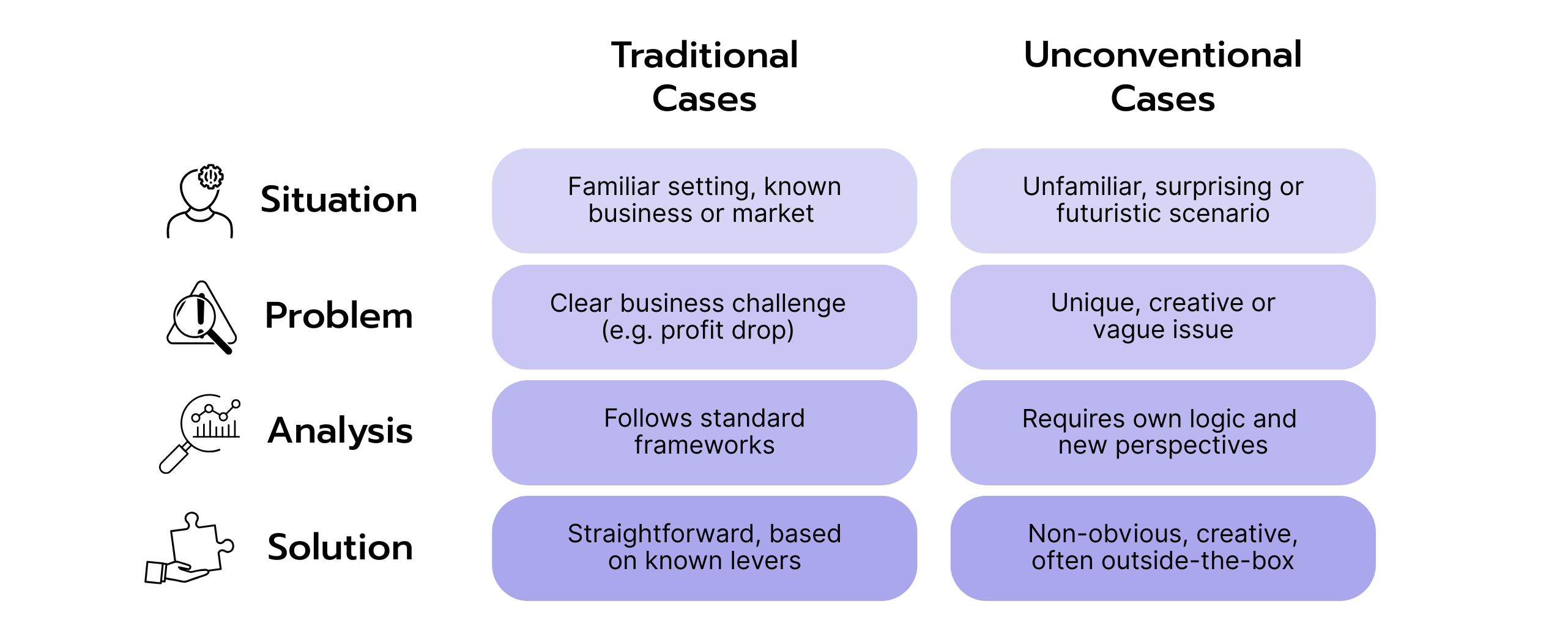Unstructured and non-traditional cases are becoming more common in case interviews, especially at top firms like MBB. Traditional business problems with standard solutions are being replaced by creative challenges that require fresh approaches.
Why is this happening? 🔎
- For one, traditional case prep is now widely available, allowing candidates to learn set solutions. This often leads to a focus on following a learned process rather than showcasing natural skills. Non-traditional cases help consulting firms keep things unpredictable and better assess candidates' true abilities.
- These cases also push candidates to think creatively while maintaining structure, helping to identify those who can succeed not just in interviews, but in the consulting role itself.
- Finally, non-traditional cases give firms a chance to evaluate candidates from diverse backgrounds, not just engineers or finance experts, focusing on the qualities that make a great consultant.
As these types of cases become more common, it’s crucial to adapt your preparation. In this article, we’ll break down what these cases involve, how to tackle them, and key strategies to excel.





